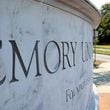AUTHOR EVENT
'My Father and Atticus Finch.' Author Joseph Madison Beck reads, discusses and signs copies. 7 p.m. June 20. Free. Presented by A Cappella Books. Jimmy Carter Presidential Library, 441 Freedom Parkway, Atlanta. 404- 681-5128, www.acappellabooks.com.
ABOUT THE STORY
Before Harper Lee published “Go Set a Watchman” last summer, Atticus Finch ranked right up there as the consummate father figure for many fans of “To Kill a Mockingbird.” With the debut of that beloved novel’s sequel, we were reminded that no one is without flaw and putting people on pedestals is the first step to knocking them off. On this day in which we honor our fathers, we present an excerpt of Joseph Madison Beck’s memoir about his father and one of the most significant trials of his career, a trial very similar to the one in “Mockingbird.”
Suzanne Van Atten
Personal Journeys editor
personaljourneys@ajc.com
NEXT WEEK: Frank Barham died 42 miles shy of his goal. Ben Gray finishes the journey for him.
About the story: Before Harper Lee published “Go Set a Watchman” last summer, Atticus Finch ranked right up there as the consummate father figure for many fans of “To Kill a Mockingbird.” With the debut of that beloved novel’s sequel, we were reminded that no one is without flaw and putting people on pedestals is the first step to knocking them off. On this day in which we honor our fathers, we present an excerpt of Joseph Madison Beck’s memoir about his father and one of the most significant trials of his career, a trial very similar to the one in “Mockingbird.”
My father did not “sell for his worth.” His sister told me that and my mother did not disagree. What did that mean, I wondered as a child. Only as an adult did I trace it to a time before my birth when, as a young white lawyer, he represented a black man charged with raping a white woman in a small town in south Alabama. My interest intensified as time went on because this was my father; because, like him, I became a lawyer; and because people kept saying his case could have inspired Harper Lee’s celebrated novel, “To Kill a Mockingbird.”
For a while, the thought that the defendant’s lawyer in “Mockingbird” could have been modeled on Foster Campbell Beck — my father! — was enough for me. When even Ms. Lee, in a gracious letter forwarded to me by her agent, acknowledged the “obvious parallels” (adding that she could not “recall” my father’s case and that her work was “fiction”), I decided it was time to find out more for myself.
The manuscript for this book was accepted for publication prior to the release of Ms. Lee’s “Go Set a Watchman,” a book that brings to mind the question: Who is the real Atticus Finch — the beloved lawyer in “Mockingbird” or the paternalistic bigot of “Watchman”? The truth is, there were both kinds of Atticus — and many variations of them — in south Alabama in those days.
Some have insisted that the Atticus of “Mockingbird” was an idealized Southern white man who never existed, and that the racist Atticus of “Watchman” is the accurate portrayal. But that is not the whole truth. My father never subscribed to racist reading materials and never attended a meeting of the White Citizens’ Council or the Klan; he despised both organizations. I never heard him refer to Negroes (as African Americans were properly called when I was growing up) as “backward” or “in their childhood as a people,” or say anything at all like that.
On the other hand, like the Atticus of “Mockingbird,” my father forbade use of the word “nigger,” accepted farm produce from indigent clients in payment for legal work, and, most importantly, courageously defended a black man wrongfully accused in 1930s’ Alabama of raping a white woman.
If you miss the Atticus of “Mockingbird,” if you feel sad about the Atticus of “Watchman,” keep reading. This book is about neither of those fictional characters; instead, it is about a real life lived with conviction.
What follows is based not only on conversations with my parents but also on my father’s handwritten family history, newspaper articles about that case, the transcript of the trial, and the Alabama Supreme Court opinion; all of that is factual. As I was not born until five years after the trial, sometimes I must surmise, from knowledge of my family and the times, what may have been said, what surely was said. I believe that content to be factual as well, even though the words have not previously been set down on paper.
My father, Foster Beck, was dying when he began work on our family history, and he had just begun describing the case when his handwriting stops in the middle of this sentence: “[The prosecution] … produced testimony that the defendant was purported to be a …”
Fortunately, I remember him telling me a lot more about State of Alabama v. Charles White, Alias, starting with how the case came to him.
***
Judge W.L. Parks began the telephone call to Foster Beck with the customary courtesies, asking first after his father, then about his law practice. Other questions, too: about the dry spell, fishing conditions. Finally, in his own good time, the judge said what he was calling about, the rape case there in Troy.
It was news to Foster, who had not heard about a rape in Troy. Troy was 37 miles away.
Foster cleared his throat. “A rape case, Judge?”
In the same moment, he heard a familiar click.
“Talking with the court, if you please, ma’am.” He was hoping the elderly lady he shared a party line with would stop listening in.
Negro from up North, Judge Parks said. Goes by Charles White, but he's had some aliases. And it was a rape of a white girl.
The judge seemed surprised Foster didn’t know. It was all over the Troy and Montgomery papers.
Foster was straining to hear. Outside, a pair of mules had run a wagon into a gully that had washed out back in April. The Negro driver and two other Negro workers from a local peanut farm were loudly arguing over what to do about the broken axle. With the judge’s permission, Foster set down the telephone receiver and went to close the window. Then he returned to the roll-top desk his father had loaned him and picked up the telephone receiver and slid the electric fan closer to his chair.
The Troy bar, Judge Parks was saying, the ones who could try a case, got themselves appointed special prosecutors.
Foster knew why the Troy lawyers did that — to create a conflict of interest so they wouldn’t have to take the case. He felt a twitch in his stomach.
The judge teased Foster a little, about not smiling much. Then he said he’d heard about the bastardy case Foster had brought against the son of a prominent man there in Enterprise, Ala.
“The boy made that girl pregnant, Judge. There wasn’t really much of a dispute to it once the boy’s father admitted on the stand the child was his spitting image.”
Even with the closed window, Foster could hear a white man outside his office berating the Negro driver for letting the mules run the wagon into the gully.
All the same, Judge Parks was impressed. It took guts, he said, to bring a bastardy claim in Enterprise against that boy. That family. For bastardy! The judge’s voice was laced with merriment and his tone invited Foster to respond in kind.
Foster had been told for years that he did not smile enough and he had tried to work on it, but he did not laugh or even smile when he replied.
“I won for her the princely sum of $100 per year, Judge, that’s all there was to it.” He was becoming uncomfortable about where this was heading.
Judge Parks said he knew the statute, knew $100 a year was all the law gave. And then he said he wanted Foster to be the lawyer for Charles White, Alias. That was all there was to it.
I have no doubt that the much publicized, so-called Scottsboro decisions a few years earlier by the United States Supreme Court were on the mind of Judge Parks. I know they were on the mind of my father who told me years later of his disgust and embarrassment that his beloved Alabama had denied simple justice to nine black male teenagers accused of raping two white girls. The first convictions had been reversed because the Alabama trial judge had refused to allow time for the defense lawyers to prepare, resulting in a denial of due process of law; the second convictions — this time the defense lawyer was the brilliant and esteemed Samuel Leibowitz of New York — were also reversed because black citizens had been systematically excluded from being called for possible jury duty.
“I have a pretty full calendar right now, Judge,” Foster stalled. The fact was, he had very little on his calendar and needed work. His reputation was growing but his savings were shrinking. He had stopped several farm foreclosures since the first of the year, receiving two sides of salt pork, a dozen jars of blackberry jam and a cord of firewood in payment. And he had gotten an unwed mother $100 and the public judgment of Enterprise that even the powerful had to stand before the law. Government of laws, not of men; he was proud of that. People in Enterprise seemed to like his results, too. But defending a Negro for raping a white woman? He needed time to think.
Judge Parks was determined. He could work with Foster’s calendar. Besides, there was not going to be a trial. The Negro had already confessed. But the judge still wanted him to have first-class representation for the sentencing by a son of Alabama. If Foster didn’t take the case, and with all the Troy lawyers having a “conflict,” Roosevelt would send “some Jew lawyer” from New York.
My father told me that he had to smile just a little when the judge said that. He was pretty sure Judge Parks didn’t know any Jewish lawyers from New York. My father knew some, though, because he had gone to the University of Alabama with them. He had not been afraid of them. The truth was, the Jewish law students from New York were the ones who had been afraid, but they came anyway, all the way to Tuscaloosa, for the best education they could afford; and he told me it had given him pride that they thought the University of Alabama was a good place to study law, with all the schools up in New York.
“Judge, let me think about it. I’ll tell you something next week.”
Judge Parks’ tone turned impatient. “You know I can appoint you,” he said. It was a statement, not a question.
Foster was not sure that was true; he was from neighboring Coffee County, not Pike County where the trial would be held, although both counties were in the same circuit. But he was curious and he couldn’t help but be flattered that he was being asked to take the case, so he said, “When’d this happen?”
Judge Parks was incredulous. It happened Tuesday. Didn’t Foster get the Messenger? The better class in Enterprise took the Troy Messenger as well as the Enterprise Ledger. Foster took the Messenger and the Ledger. He also took the Atlanta Constitution.
“Messenger gets here a day late.” Foster saw yesterday’s unread stack of papers where the maid had left them. He couldn’t throw away a newspaper until he’d read it. In that way, he was like his father, who read a dozen papers a week, from Troy, Montgomery, Atlanta, Chicago, New York, all over.
Judge Parks told Foster to read the front page of the Tuesday paper. Judge Parks said he had asked the reporter to withhold his name, but that he was the one who had ordered Charles White to be rushed from the Troy jail to Kilby prison in Montgomery. The judge didn’t want a lynching there in Troy. It was 1938, not ’28. The judge cleared his throat. He told Foster again that he wanted him to do it. Then he said, “Foster, your daddy would want you to do it.”
Thankfully, I don’t have to rely on my father’s handwritten history for an image of the man Judge Parks called “your daddy.” The man was my grandfather, whom I was told to address as Granddaddy.
I saw him often. More than half a century later, I can still see his gangly frame, the dark, melancholy eyes, the squared-off, weathered face and uncombed iron-gray hair, the gold watch chain hanging across his belly. And there were his smells — of tobacco and of something else that I was not able to identify at the time, bourbon; only in later years did I learn about his borderline alcoholism, much later about his use of cocaine.
He and I were the best of friends until his death when I was 12 years old, although I suspect that he liked me mostly because I was the only male heir to carry forward the name Madison Beck, a suspicion partially confirmed in a strange, rambling letter about “a lonely old man,” written to me in the year I was born but ceremoniously withheld until my 10th birthday, and signed “Granddaddy for whom you are named.”
My father would have bridled when Judge Parks brought up his father, calling him “your daddy” instead of calling him “Mr. M.L.” Everyone who wasn’t blood kin called Madison Lewis Beck “Mr. M.L.” Sometimes my father even referred to him that way outside the family. But what he would have resented more was Judge Parks’ presumption: that because of his father’s reputation as a progressive on race, he should take the case.
This excerpt of “My Father & Atticus Finch: A Lawyer’s Fight for Justice in 1930s Alabama” by Joseph Madison Beck is published with permission from W.W. Norton & Company.





